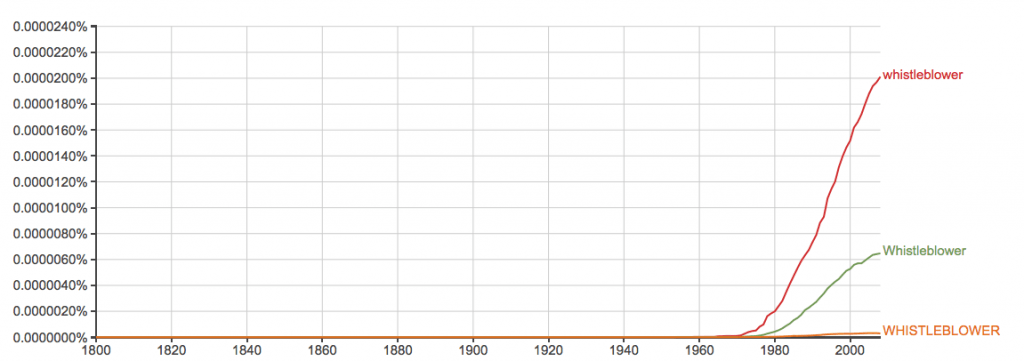Type define: whistleblower in a browser’s address bar and Google returns the definition of “a person who informs on a person or organization engaged in an illicit activity.” A graph indicates the increased prevalence of the term, which shows:

Prevalence of use of whistleblower in the media. Graph via Google
Clearly, the use of the term “whistleblower” has grown tremendously in recent years as more individuals have come forward to expose criminal conduct and wrongdoing by their employers. The Whistleblower Protection Act of 1989 has played a role by offering necessary legal protections for those who come forward. There is even a list of known whistleblowers published on Wikipedia. All of this shows that individuals are willing to step forward and speak up when they observe unlawful or improper activities in the workplace.
Whether you work for a private employer or a government agency, there are laws in place to protect you should you decide to blow the whistle on your employer. Visit whistleblowers.gov to read more on the Whistleblower Protection Programs. This OSHA FactSheet is also a helpful resource in identifying your rights as a whistleblower. Additionally, the National Whistleblowers Center offers support as a non-profit, non-partisan organization with the stated mission of promoting “Honesty without fear.”
If you are aware of criminal conduct or fraud by a healthcare provider, employer or government contractor, then it is important that you know your rights as a whistleblower. We encourage you to call our Atlanta law offices for support and guidance in a whistleblowing situation. Jay Brownstein has over 25 years of experience in complex legal, business and employment matters, and is able to expertly guide individuals faced with delicate whistleblowing decisions and serious implications. Call us today at 770-458-9060 for a consultation.
